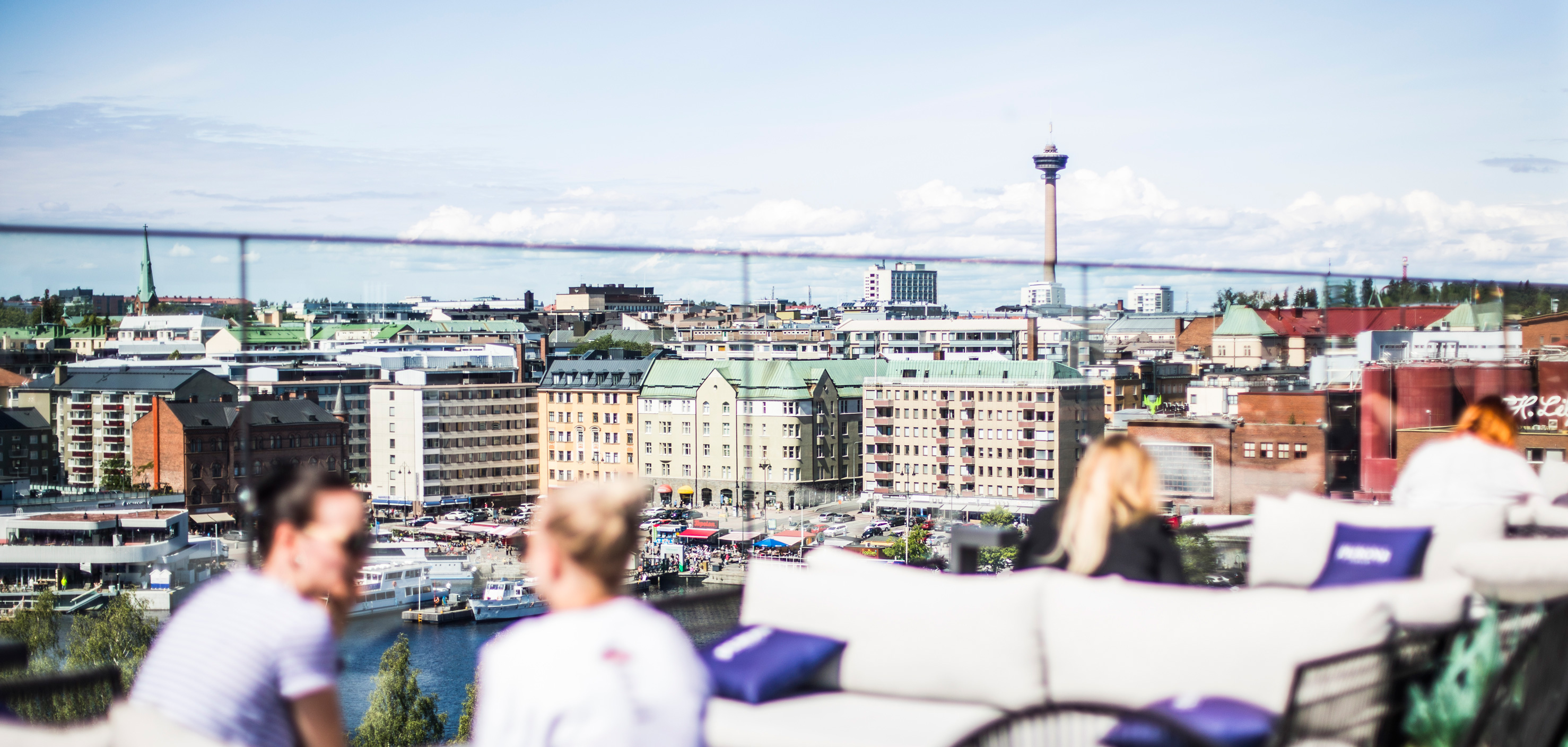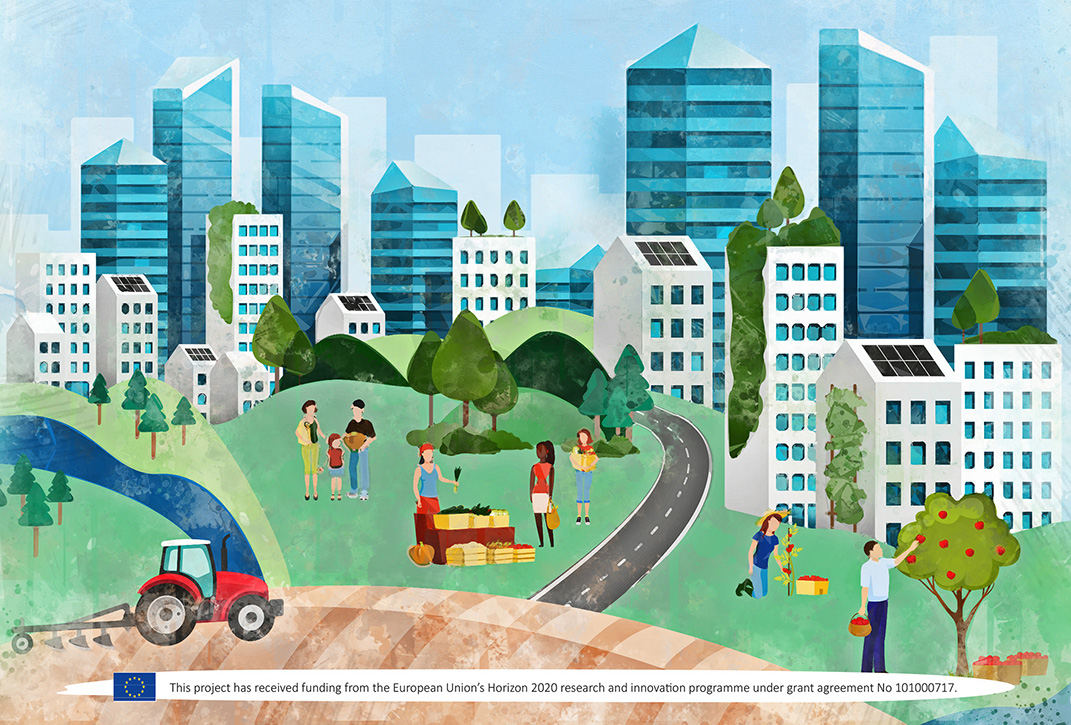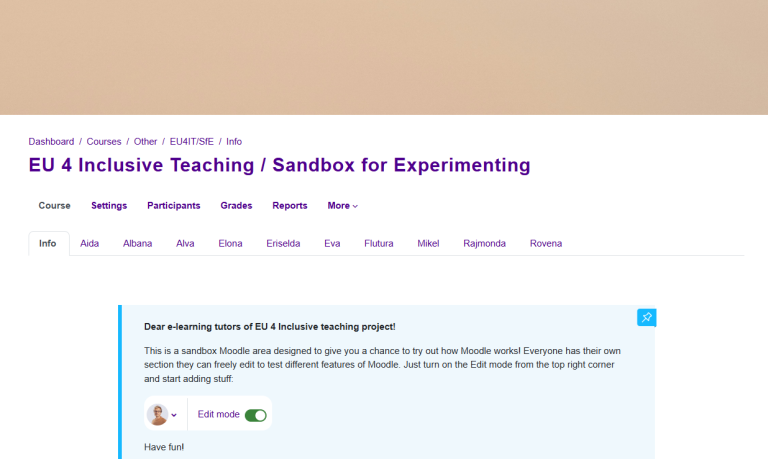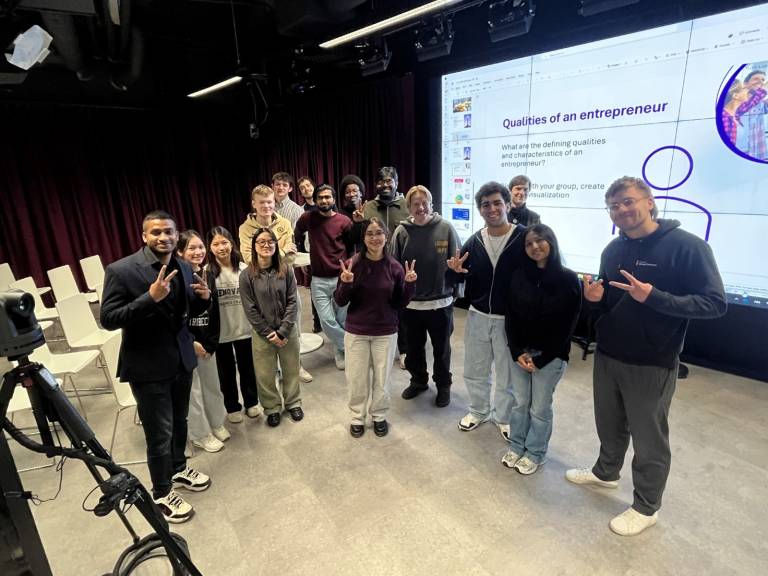Educational organizations are privileged to be in the front line of active future making. They have an opportunity to ensure a long-term impact of sustainability actions in the society. Experts graduating from higher education play an important role in sustainable use of natural resources and advancing circular economy in their field. Especially in the hospitality industry, many graduates work in processes that can directly make a significant contribution to the food system sustainability transition and promote climate-friendly, healthy and nutritious food consumption.
FUSILLI Project guiding to future competences of hospitality management
FUSILLI (Fostering the Urban Food System Transformation through Innovative Living Labs Implementation) is a food and natural resources project in EU. The project will focus on supporting 12 different cities to facilitate their transition towards more sustainable food systems. In FUSILLI Project TAMK is a partner with City of Tampere in cultivating sustainable urban food system in Tampere region.
Parallel to the activities of FUSILLI Project, we at TAMK School of Business and Media started to renew Degree Programme of Hospitality Management curriculum. While mapping the future competences relevant to experts and managers working in hospitality industry, it became evident that food system understanding and competencies in sustainable development are essential both from research and business perspectives.
Curriculum providing an impact of sustainability objectives
In a previous Horizon 2020 project, FIT4FOOD2030 (2017–2020), it was already recognized that embedding sustainable food system principles into university degree programme curriculum provides an opportunity for a long-term impact (European Commission 2021). Education is one concrete way to support the objectives of the FUSILLI Project through policy guidance and to ensure the continuity beyond the project period.
At TAMK our future Hospitality Management education will be inspired by the FUSILLI Project objectives and EU’s FOOD2030 policy priorities. Importance of objectives and priorities convinced us to include course contents and learning goals related to nutrition for sustainable and healthy diets, climate-smart and environmentally sustainable food systems, and circularity of the across all stages of the food chain. In practise, we focus especially on providing our students skills and competences in sustainable business models, promoting planetary diet food choices as well as ensuring safe and just food system transition.
Solving systemic problems require re-thinking and co-innovation
The FUSILLI Project also sparks us to develop TAMK Catering Studio Living Lab of Food & Sustainability to make our RDI activities to flourish. On the top of actual curriculum content, participating to the Living Lab activities is a part of each student’s innovation education, ensuring that they’ll embrace design thinking and concept of strong sustainability implementation while working in hospitality industry decision-making in the future. These elements are integrated into the curriculum starting in August 2022.
We encourage other educational organizations to consider sustainable food system related educational needs in their curriculum renewal processes. Learning questions could be: “What kind of future does the current curriculum or learning goals create?” or “What kind of future does the learning community want to build?” (Puranen 2022).
More information on FUSILLI project at our Finnish website https://www.fusilli.fi/
and at international project website https://fusilli-project.eu/
This project has been funded from European Union’s Horizon 2020 research and innovation programme under the grant agreement No 101000717.
Text: Sanna Luoto, Senior Lecturer, TAMK School of Business and Media
Image: FUSILLI Project
References:
European Commission, Directorate-General for Research and Innovation, 2021. Research & innovation for accelerating food system transformation: Operationalising FOOD 2030 through living labs. Publications Office. Read on 10.2.2022. https://data.europa.eu/doi/1.2777/374723
Puranen, K. 2022. Nyt aletaan opettaa systeemistä muutosta. Mitäääh? Opettaja 1/2022. Read on 10.2.2022. https://www.opettaja.fi/tyossa/nyt-aletaan-opettaa-systeemista-muutosta-mitaaah/





